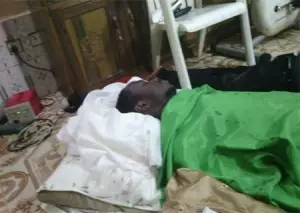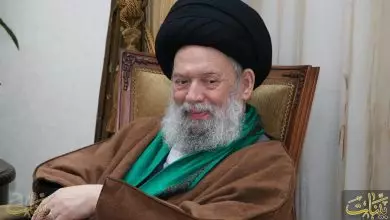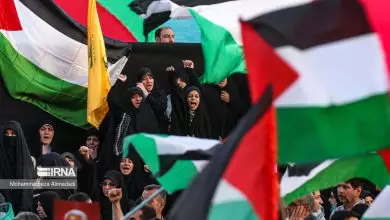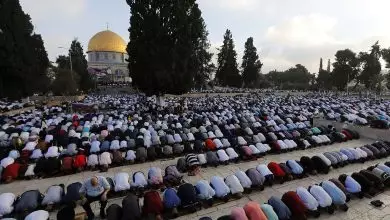Bloody Quds Day in Nigeria: Israeli Puppet Nigerian Government’s Soldiers Killed at least 15 among them 3 Children of Sheikh Zakzaky

 nna Lillahi wa Inna Ilaihi Raji’oon ( Three Children of Sheikh Zakzaky killed by Soldiers).
nna Lillahi wa Inna Ilaihi Raji’oon ( Three Children of Sheikh Zakzaky killed by Soldiers).
Friday 25-07-14 is a sad day, akin to a black Friday, in which some security agents of the federal republic of Nigeria, soldiers by the khaki they wore, gunned down, as at the time of writing this press release, 15 Innocent fasting Muslim brothers,
who were peacefully voicing their discontent with the unfortunate massacre of Palestinians by Israel. Zaria residents are a witness to the peaceful nature of the procession which took off from Sabon Gari Jumaat mosque up to its termination point at Kofar Doka, Zaria City.
Nobody was molested let alone his property. Infact the leader of the procession was delivering his speech, when some soldiers attacked the participants of the procession who were at PZ Junction in Zaria.In the ensuing melee, 15 people were killed by the soldiers, 40 were shot and now receiving treatment. And among the killed is a Muslim Sister together with her child on her back and three sons of Shaikh Zakzaky, Mahmud Ibraheem Zakzaky who was shot died on the spot and Ahmad Ibraheem Zakzaky and Hameed Ibraheem Zakzaky were brutally killed when in the custody of the soldiers in Barrack after they took them away. Also among those shot by the soldiers are two Muslim sisters. Two of the 3 children of Sheikh Zakzaky in custody of the Nigerian army were killed namely Ahmad and Hameed while the fate of Ali is not yet known.
We vehemently condemn this vicious atrocity committed by the soldiers on us. Why should we be attacked? Whom did we provoke during the peaceful procession? Who authorised this attack? Who participated in the attack among the soldiers? These are some of the questions the security operatives in the state need to answer us and the public.
Also we demand the unconditional release of Sheikh Zakzaky’s child in soldiers custody and other Muslim brothers they might be holding. And should anything happen to them, we will hold the authorities responsible! This is not the first peaceful procession carried out by Muslim brothers in Zaria. In fact due to its peaceful nature residents in Zaria don’t consider it as an unusual event that calls for caution. Another proof of the peaceful nature of the procession is the fact that it was staged today in Kaduna, Kano, Sokoto, Katsina, Potiskum, Jos, Bauchi, Gombe, and many other towns in Northern Nigeria and all ended peacefully. So why should the one in Zaria be an exception? The authorities should explain. The casualty figures might increase, God willing we will keep the public informed of the Transgressor in Nigeria.
Signed ABDULHAMID BELLO
Below is Sayyid Mahmud Zakzaky killed by the soldiers in Zaria, and some of the martyrs.










